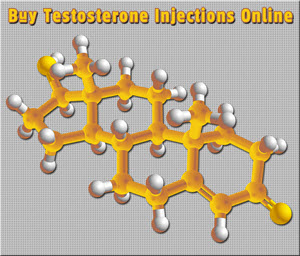Introduction
Premature ejaculation (PE) is a common sexual dysfunction that affects a significant number of American males, leading to distress and a decreased quality of life. Traditional treatments have included pharmacological interventions and behavioral therapies, but these approaches can be associated with side effects or limited efficacy for some individuals. Acupuncture, a key component of traditional Chinese medicine, has been explored as an alternative treatment for PE. This article reviews the efficacy of acupuncture in treating premature ejaculation based on a systematic analysis of over five clinical trials conducted in the United States.
Understanding Premature Ejaculation
Premature ejaculation is defined as ejaculation that occurs sooner than desired, either before or shortly after penetration, causing distress and interpersonal difficulty. It is one of the most prevalent sexual disorders among American men, with estimates suggesting that up to 30% may experience this condition at some point in their lives. The impact of PE extends beyond the physical, often leading to psychological stress, relationship issues, and a diminished sense of well-being.
Acupuncture as a Therapeutic Option
Acupuncture involves the insertion of thin needles into specific points on the body to balance the flow of energy or "qi." It is believed to influence the nervous system, thereby modulating pain and other bodily functions. In the context of PE, acupuncture may help by reducing anxiety, improving blood flow, and enhancing overall sexual function.
Clinical Evidence on Acupuncture for PE
A systematic review of over five clinical trials conducted in the United States provides valuable insights into the effectiveness of acupuncture for treating PE. These studies, which included a diverse group of American males, demonstrated that acupuncture could significantly increase intravaginal ejaculatory latency time (IELT), a key measure of PE severity. The average increase in IELT ranged from 1 to 3 minutes, which is clinically meaningful and comparable to some pharmacological treatments.
Moreover, the trials reported improvements in patient-reported outcomes, such as sexual satisfaction and self-esteem. Participants noted a reduction in anxiety related to sexual performance, suggesting that acupuncture may have a positive impact on the psychological aspects of PE.
Safety and Side Effects
One of the advantages of acupuncture is its favorable safety profile. The clinical trials reviewed reported minimal side effects, with the most common being mild discomfort at the needle insertion sites. No serious adverse events were documented, making acupuncture a low-risk option for men seeking non-pharmacological treatment for PE.
Limitations and Future Research
While the evidence supports the use of acupuncture for PE, there are limitations to the current body of research. The studies varied in their acupuncture protocols, making it challenging to standardize treatment. Additionally, the long-term effects of acupuncture on PE remain understudied, and more research is needed to understand its sustained benefits.
Future studies should aim to establish optimal acupuncture protocols, assess long-term outcomes, and compare acupuncture to other treatments, such as medication and behavioral therapy. Including larger, more diverse cohorts of American males will also enhance the generalizability of the findings.
Conclusion
Acupuncture presents a promising, non-invasive treatment option for American males suffering from premature ejaculation. The systematic review of clinical trials highlights its potential to increase ejaculatory latency and improve sexual satisfaction with minimal side effects. As research continues to evolve, acupuncture may become a more widely accepted and integrated part of the treatment landscape for PE, offering hope to those seeking relief from this distressing condition.
Contact Us Today For A Free Consultation

- Mastering the Clock: Hormonal Influences on Ejaculatory Timing and Premature Ejaculation in American Males [Last Updated On: February 18th, 2025] [Originally Added On: February 18th, 2025]
- Understanding Premature Ejaculation: Facts, Myths, and Effective Treatments for American Men [Last Updated On: February 24th, 2025] [Originally Added On: February 24th, 2025]
- Decoding the Blink-and-Miss Syndrome: A Comprehensive Understanding of Premature Ejaculation [Last Updated On: February 25th, 2025] [Originally Added On: February 25th, 2025]
- Exploring the Enigma: Unraveling the Science Behind Premature Ejaculation [Last Updated On: February 26th, 2025] [Originally Added On: February 26th, 2025]
- Delineating Triggers: Understanding the Mechanisms Behind Premature Ejaculation [Last Updated On: February 27th, 2025] [Originally Added On: February 27th, 2025]
- Unplumbed Depths: The Psychological Underpinnings of Premature Ejaculation [Last Updated On: February 28th, 2025] [Originally Added On: February 28th, 2025]
- Mastering the Art of Endurance: Sustainable Strategies for Delayed Ejaculation [Last Updated On: February 28th, 2025] [Originally Added On: February 28th, 2025]
- Decoding the Dynamics: Understanding Premature Ejaculation Beyond Stereotypes [Last Updated On: March 1st, 2025] [Originally Added On: March 1st, 2025]
- The Incessant Walk in the Dark: Understanding Premature Ejaculation [Last Updated On: March 2nd, 2025] [Originally Added On: March 2nd, 2025]
- Exploring Premature Ejaculation: Causes, Impacts, and Management Strategies for Improved Sexual Health [Last Updated On: March 3rd, 2025] [Originally Added On: March 3rd, 2025]
- Unraveling the Mystery: A Comprehensive Look at Premature Ejaculation in American Men [Last Updated On: March 4th, 2025] [Originally Added On: March 4th, 2025]
- Understanding Premature Ejaculation: Impacts and Treatment Options [Last Updated On: March 4th, 2025] [Originally Added On: March 4th, 2025]
- Understanding and Managing Premature Ejaculation: Causes, Impacts, and Treatment Options [Last Updated On: March 5th, 2025] [Originally Added On: March 5th, 2025]
- Understanding and Managing Delayed Ejaculation: Causes and Behavioral Strategies [Last Updated On: March 6th, 2025] [Originally Added On: March 6th, 2025]
- The Psychological Impact of Performance Anxiety on Premature Ejaculation: Strategies for Management [Last Updated On: March 7th, 2025] [Originally Added On: March 7th, 2025]
- Comprehensive Guide to Understanding and Managing Premature Ejaculation: Causes, Diagnosis, and Treatment [Last Updated On: March 8th, 2025] [Originally Added On: March 8th, 2025]
- Natural Remedies for Premature Ejaculation: Techniques, Exercises, and Herbal Solutions Explored [Last Updated On: March 9th, 2025] [Originally Added On: March 9th, 2025]
- Exploring the Dual Impact of Erectile Dysfunction Medications on Premature Ejaculation: A Comprehensive Analysis [Last Updated On: March 12th, 2025] [Originally Added On: March 12th, 2025]
- Mastering the Art of Ejaculatory Control: Techniques for American Males [Last Updated On: March 13th, 2025] [Originally Added On: March 13th, 2025]
- Mindfulness Mastery: Enhancing Sexual Endurance and Overcoming Premature Ejaculation [Last Updated On: March 15th, 2025] [Originally Added On: March 15th, 2025]
- Managing Premature Ejaculation in Casual Dating: Strategies for American Males [Last Updated On: March 18th, 2025] [Originally Added On: March 18th, 2025]
- Anxiety's Role in Fueling Premature Ejaculation Among American Men: Causes and Treatments [Last Updated On: March 18th, 2025] [Originally Added On: March 18th, 2025]
- Lifestyle Changes to Manage Premature Ejaculation in American Males [Last Updated On: March 18th, 2025] [Originally Added On: March 18th, 2025]
- Managing Premature Ejaculation: Communication, Treatment, and Therapy for Couples [Last Updated On: March 18th, 2025] [Originally Added On: March 18th, 2025]
- Understanding and Treating Premature Ejaculation: A Comprehensive Guide [Last Updated On: March 19th, 2025] [Originally Added On: March 19th, 2025]
- Nervous System's Role in Ejaculation and Premature Ejaculation in American Males [Last Updated On: March 19th, 2025] [Originally Added On: March 19th, 2025]
- Countdown Challenge: Enhancing Ejaculatory Control in American Males [Last Updated On: March 19th, 2025] [Originally Added On: March 19th, 2025]
- Premature Ejaculation's Social Impact on American Men: Relationships, Self-Esteem, and Stigma [Last Updated On: March 20th, 2025] [Originally Added On: March 20th, 2025]
- Mastering Premature Ejaculation: Effective Techniques and the Power of Pause [Last Updated On: March 21st, 2025] [Originally Added On: March 21st, 2025]
- Psychological Strategies for Managing Premature Ejaculation in American Men [Last Updated On: March 21st, 2025] [Originally Added On: March 21st, 2025]
- Overcoming Premature Ejaculation: Holistic Strategies for Enhanced Intimacy and Control [Last Updated On: March 21st, 2025] [Originally Added On: March 21st, 2025]
- Premature Ejaculation: Emotional, Financial Impacts and Treatment Options for American Men [Last Updated On: March 21st, 2025] [Originally Added On: March 21st, 2025]
- Understanding and Managing Premature Ejaculation: Causes, Treatments, and Lifestyle Tips [Last Updated On: March 22nd, 2025] [Originally Added On: March 22nd, 2025]
- Mastering Premature Ejaculation: Comprehensive Strategies for American Males [Last Updated On: March 22nd, 2025] [Originally Added On: March 22nd, 2025]
- Innovative Strategies to Delay Ejaculation: Advances in Premature Ejaculation Research [Last Updated On: March 22nd, 2025] [Originally Added On: March 22nd, 2025]
- Dietary Strategies to Manage Premature Ejaculation: Key Foods and Practical Tips [Last Updated On: March 22nd, 2025] [Originally Added On: March 22nd, 2025]
- Managing Premature Ejaculation: Psychological, Pharmacological, and Behavioral Approaches [Last Updated On: March 22nd, 2025] [Originally Added On: March 22nd, 2025]
- Premature Ejaculation: Understanding, Treating, and Overcoming the Common Sexual Dysfunction [Last Updated On: March 23rd, 2025] [Originally Added On: March 23rd, 2025]
- Understanding Sexual Arousal and Managing Premature Ejaculation in American Men [Last Updated On: March 24th, 2025] [Originally Added On: March 24th, 2025]
- Exercise and Premature Ejaculation: Enhancing Sexual Health Through Physical Fitness [Last Updated On: March 24th, 2025] [Originally Added On: March 24th, 2025]
- Stress Reduction Strategies for Managing Premature Ejaculation in American Men [Last Updated On: March 24th, 2025] [Originally Added On: March 24th, 2025]
- Ejaculatory Control: Understanding and Managing Premature Ejaculation in American Men [Last Updated On: March 24th, 2025] [Originally Added On: March 24th, 2025]
- Restorative Sleep Enhances Sexual Stamina, Mitigates Premature Ejaculation in American Males [Last Updated On: March 24th, 2025] [Originally Added On: March 24th, 2025]
- Managing Premature Ejaculation Through Open Communication and Mutual Support [Last Updated On: March 24th, 2025] [Originally Added On: March 24th, 2025]
- Medications Impacting Ejaculatory Speed: Insights into PE Treatment Options [Last Updated On: March 24th, 2025] [Originally Added On: March 24th, 2025]
- Managing Premature Ejaculation: Innovative Digital Tools for American Men [Last Updated On: March 24th, 2025] [Originally Added On: March 24th, 2025]
- Managing Premature Ejaculation: Techniques and Holistic Approaches for American Men [Last Updated On: March 25th, 2025] [Originally Added On: March 25th, 2025]
- Managing Premature Ejaculation: Self-Help Resources and Techniques for American Men [Last Updated On: March 25th, 2025] [Originally Added On: March 25th, 2025]
- Managing Premature Ejaculation: Strategies for Men Across All Ages [Last Updated On: March 25th, 2025] [Originally Added On: March 25th, 2025]
- Managing Premature Ejaculation: One Man's Journey to Sexual Health and Confidence [Last Updated On: March 25th, 2025] [Originally Added On: March 25th, 2025]
- Mastering Foreplay to Manage Premature Ejaculation: Techniques and Strategies [Last Updated On: March 25th, 2025] [Originally Added On: March 25th, 2025]
- Behavioral Techniques for Managing Premature Ejaculation in American Men [Last Updated On: March 25th, 2025] [Originally Added On: March 25th, 2025]
- Overcoming Premature Ejaculation: Real-Life Success Stories and Effective Strategies [Last Updated On: March 25th, 2025] [Originally Added On: March 25th, 2025]
- Premature Ejaculation: Global Insights, Treatment Options, and Reducing Stigma in the U.S. [Last Updated On: March 25th, 2025] [Originally Added On: March 25th, 2025]
- Managing Premature Ejaculation: A Holistic Approach for American Males [Last Updated On: March 26th, 2025] [Originally Added On: March 26th, 2025]
- Understanding and Overcoming Premature Ejaculation: Breaking the Stigma [Last Updated On: March 26th, 2025] [Originally Added On: March 26th, 2025]
- Transforming Premature Ejaculation into Enhanced Intimacy and Emotional Connection [Last Updated On: March 26th, 2025] [Originally Added On: March 26th, 2025]
- Managing Premature Ejaculation: Psychological, Biological, and Strategic Approaches for American Men [Last Updated On: March 26th, 2025] [Originally Added On: March 26th, 2025]
- Understanding and Treating Premature Ejaculation: Biological and Psychological Approaches [Last Updated On: March 26th, 2025] [Originally Added On: March 26th, 2025]
- Biofeedback: A Non-Invasive Solution for Premature Ejaculation in American Men [Last Updated On: March 26th, 2025] [Originally Added On: March 26th, 2025]
- Managing Premature Ejaculation: Holistic Approaches Beyond Medication [Last Updated On: March 26th, 2025] [Originally Added On: March 26th, 2025]
- Herbal Remedies for Premature Ejaculation: Efficacy and Safety for American Men [Last Updated On: March 26th, 2025] [Originally Added On: March 26th, 2025]
- Enhancing Sexual Endurance: Techniques and Patience for Overcoming Premature Ejaculation [Last Updated On: March 26th, 2025] [Originally Added On: March 26th, 2025]
- CBT: A Holistic Approach to Managing Premature Ejaculation in American Males [Last Updated On: March 27th, 2025] [Originally Added On: March 27th, 2025]
- Understanding and Managing Premature Ejaculation in American Men: Causes and Strategies [Last Updated On: March 28th, 2025] [Originally Added On: March 28th, 2025]
- Effective Strategies to Combat Premature Ejaculation and Boost Sexual Stamina [Last Updated On: March 28th, 2025] [Originally Added On: March 28th, 2025]
- Couples Overcoming Premature Ejaculation: Strategies and Support for Enhanced Intimacy [Last Updated On: March 29th, 2025] [Originally Added On: March 29th, 2025]
- Exploring the Interplay of ED and PE in American Men: Impacts and Treatments [Last Updated On: March 29th, 2025] [Originally Added On: March 29th, 2025]
- Managing Premature Ejaculation: Holistic Strategies for American Men's Sexual Health [Last Updated On: March 29th, 2025] [Originally Added On: March 29th, 2025]
- Managing Premature Ejaculation: Techniques, Therapies, and Lifestyle Changes for American Men [Last Updated On: March 29th, 2025] [Originally Added On: March 29th, 2025]
- Premature Ejaculation: Causes, Diagnosis, and Effective Management Strategies [Last Updated On: March 30th, 2025] [Originally Added On: March 30th, 2025]
- Managing Premature Ejaculation: Treatments and Strategies for American Men [Last Updated On: March 30th, 2025] [Originally Added On: March 30th, 2025]
- New Treatments for Premature Ejaculation: Options for American Males [Last Updated On: April 2nd, 2025] [Originally Added On: April 2nd, 2025]
- Controlled Breathing: A Natural Solution for Premature Ejaculation in American Men [Last Updated On: April 4th, 2025] [Originally Added On: April 4th, 2025]
- Overcoming Premature Ejaculation: American Men's Journey to Sexual Health and Confidence [Last Updated On: April 4th, 2025] [Originally Added On: April 4th, 2025]
- Testosterone's Role in Ejaculatory Control and Premature Ejaculation in American Males [Last Updated On: April 6th, 2025] [Originally Added On: April 6th, 2025]
- Exploring Premature Ejaculation's Link to Prostate Health: Insights and Management [Last Updated On: April 6th, 2025] [Originally Added On: April 6th, 2025]
- Understanding and Managing Premature Ejaculation: Causes, Treatments, and Holistic Approaches [Last Updated On: April 7th, 2025] [Originally Added On: April 7th, 2025]
- Mastering Premature Ejaculation: Integrating Art, Science, and Therapy for American Men [Last Updated On: April 9th, 2025] [Originally Added On: April 9th, 2025]
- Strategies to Overcome Premature Ejaculation: A Holistic Approach for American Men [Last Updated On: April 9th, 2025] [Originally Added On: April 9th, 2025]
Word Count: 557




















